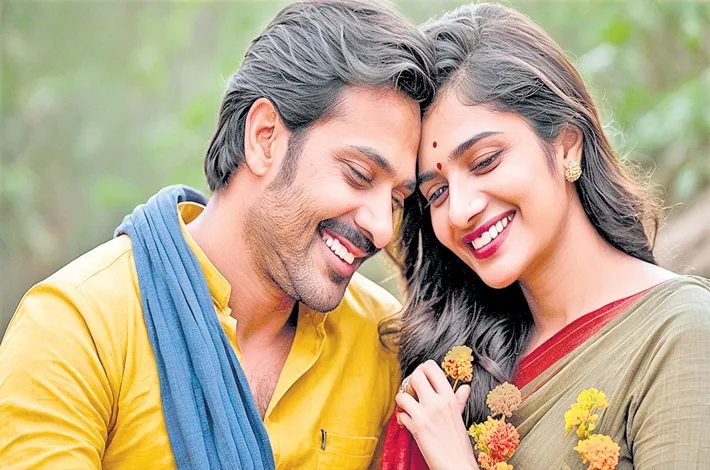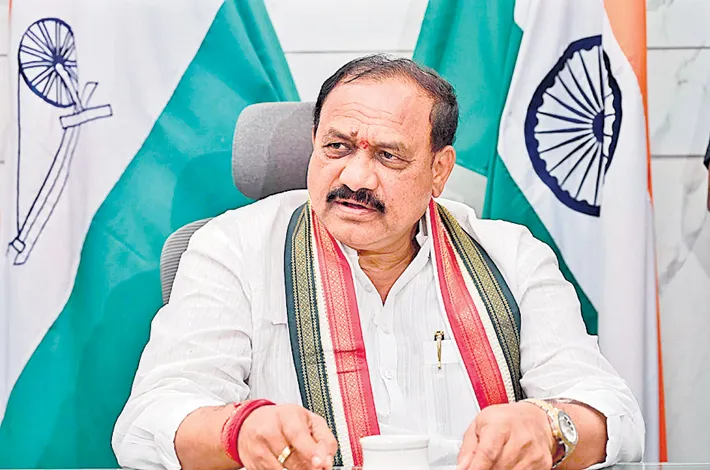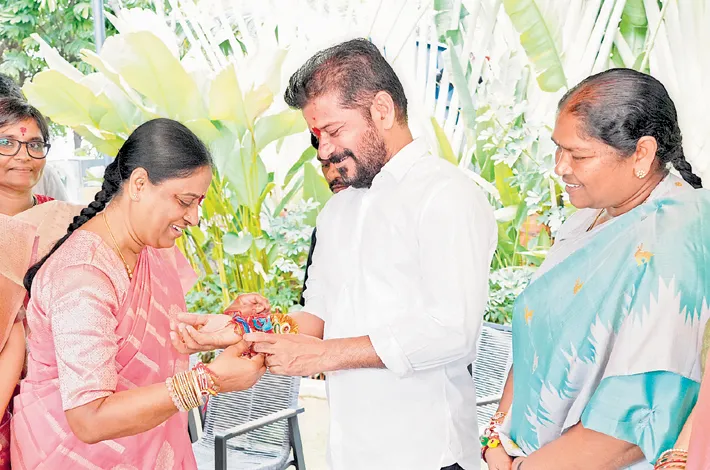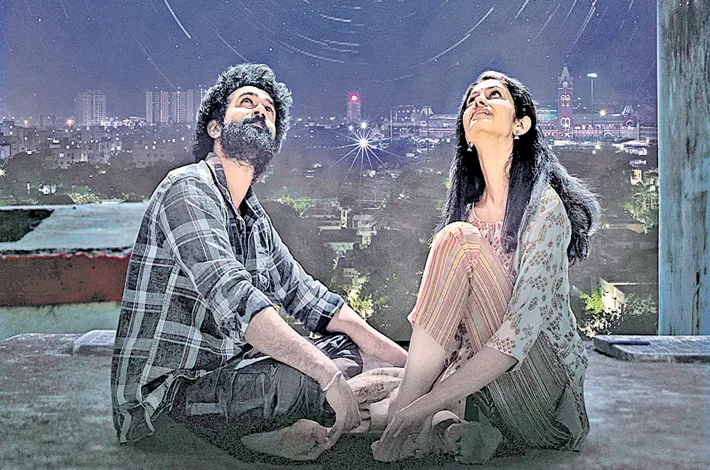Eternal Sparks of Love in Raipur
11-06-2025 12:00:00 AM

In the heart of Raipur, where the Mahanadi River whispers tales of time and the sprawling campus of Ravishankar University hums with youthful dreams, a love story unfolded that would linger like the scent of rain-soaked earth. Arjun Iyer, a soft-spoken South Indian Brahmin from Chennai, and Meera Saxena, a spirited girl from Madhya Pradesh, found in each other a harmony that transcended their worlds.
Arjun had arrived in Raipur in 2018, pursuing a master’s in environmental science at Ravishankar University. His world was one of discipline and tradition—mornings began with the aroma of filter coffee and the chants of Vedic hymns his mother insisted he recite over video calls. With his neatly combed hair and glasses perched on his nose, he was a picture of quiet resolve, often found in the library poring over ecological journals or sketching migratory birds in his notebook.
Meera, a native of Jabalpur, was a burst of energy in the same department. A final-year undergraduate, she was known for her fiery debates in class and her love for Raipur’s street food—poha-jalebi at dawn, chaat by the Telibandha Lake at dusk. Her laughter echoed through the campus, and her kajal-lined eyes held a spark that drew people in. The Saxena family, rooted in Madhya Pradesh’s cultural heartland, valued education and ambition, and Meera embodied both with her dreams of becoming an environmental activist.
Their paths crossed during a university cleanup drive along the Mahanadi’s banks in 2019. Arjun, meticulous and focused, was sorting plastic waste when Meera, wielding a megaphone, rallied volunteers with infectious enthusiasm. “Hey, Chennai boy!” she called out, noticing his methodical approach. “You’re too slow! The river won’t wait for you.” Arjun blushed, unaccustomed to such directness, but her teasing smile disarmed him. He mumbled a reply about precision, and she laughed, tossing him a pair of gloves. “Join my team,” she said. “We’ll save the world faster.”
That day marked the beginning. They bonded over shared passions—protecting Chhattisgarh’s wetlands, debating climate policies, and sneaking off to Budha Talab for quiet walks. Arjun admired Meera’s fearlessness; she could convince a crowd to plant trees or charm a street vendor into extra chutney. Meera, in turn, found solace in Arjun’s calm presence. His stories of Chennai’s beaches and Carnatic music intrigued her, while her tales of Jabalpur’s marble rocks and tribal festivals fascinated him.
Their differences were stark yet complementary. Arjun’s vegetarian upbringing clashed with Meera’s love for spicy non-veg curries, leading to playful arguments at Raipur’s food stalls. “Try my dosa,” he’d urge, offering a crisp masala dosa from a South Indian eatery near Magneto Mall. “Only if you try my korma,” she’d retort, dragging him to a local dhaba. Over time, they found balance—Arjun learned to savor her spicy chaats, and Meera developed a taste for his mother’s sambar recipe, sent via WhatsApp.
Their love deepened in Raipur’s quieter corners. During monsoons, they’d sit under the university’s ancient banyan tree, sharing an umbrella as rain pattered around them. Arjun would read Tamil poetry, translating it for Meera, while she’d hum old Hindi film songs, her voice soft against the drizzle. One evening, as fireflies danced near Vivekananda Sarovar, Arjun took her hand. “Meera,” he said, his voice steady despite his racing heart, “you’re my home, no matter where I am.” Her eyes glistened as she replied, “And you’re my adventure, Arjun.”
But love wasn’t without challenges. Arjun’s family, steeped in tradition, expected him to marry within their community. Meera’s parents, proud of their Saxena lineage, were skeptical of a South Indian match. Whispers of “cultural differences” loomed, but the couple faced it with resolve. Meera invited Arjun’s parents to Raipur’s Sirpur Heritage Festival, where they saw her respect for tradition in her reverence for Chhattisgarh’s ancient temples. Arjun, in turn, visited Jabalpur, winning over Meera’s family with his sincerity and knowledge of their state’s biodiversity.
By 2021, as Arjun completed his degree and Meera prepared for her master’s, they were inseparable. They dreamed of a future together—perhaps an NGO to protect Raipur’s lakes or a small café where they’d serve dosas and poha side by side. Their love was a tapestry woven from Raipur’s vibrant chaos: stolen glances in crowded classrooms, late-night study sessions at the university canteen, and promises made under Raipur’s starry skies.
One winter evening in 2025, now working together on a wetland conservation project, they stood by the Mahanadi, where it all began. Raipur’s skyline glowed faintly, and the river reflected the crescent moon. Arjun pulled out a small silver ring, etched with a tiny lotus—a nod to Meera’s love for Madhya Pradesh’s state flower. “Marry me, Meera,” he said, his voice carrying the weight of years of love. Meera’s laughter rang out, her eyes brimming with tears. “Only if you promise to dance at our wedding,” she teased, slipping the ring on.
Their wedding, held in Raipur in 2026, was a celebration of their worlds. The ceremony blended South Indian rituals with North Indian flair—Arjun in a veshti, Meera in a lehenga, with pandits chanting alongside qawwali singers. Friends from Ravishankar University cheered as they exchanged garlands under a mandap adorned with marigolds and jasmine. Raipur’s streets, alive with dhol beats and filter coffee stalls, bore witness to their union.
Years later, as they ran their environmental NGO in Raipur, Arjun and Meera remained the ideal partners they’d always been. Their home, a cozy flat near Telibandha Lake, was filled with laughter, books, and the aroma of sambar and poha. Their love, born in the heart of Ravishankar University, had weathered doubts and distances, proving that when two souls find their match, no river is too wide to cross, no tradition too rigid to bend. In Raipur’s embrace, Arjun and Meera built a life that was as enduring as the Mahanadi itself—a love story written in the city’s dust and dreams.








